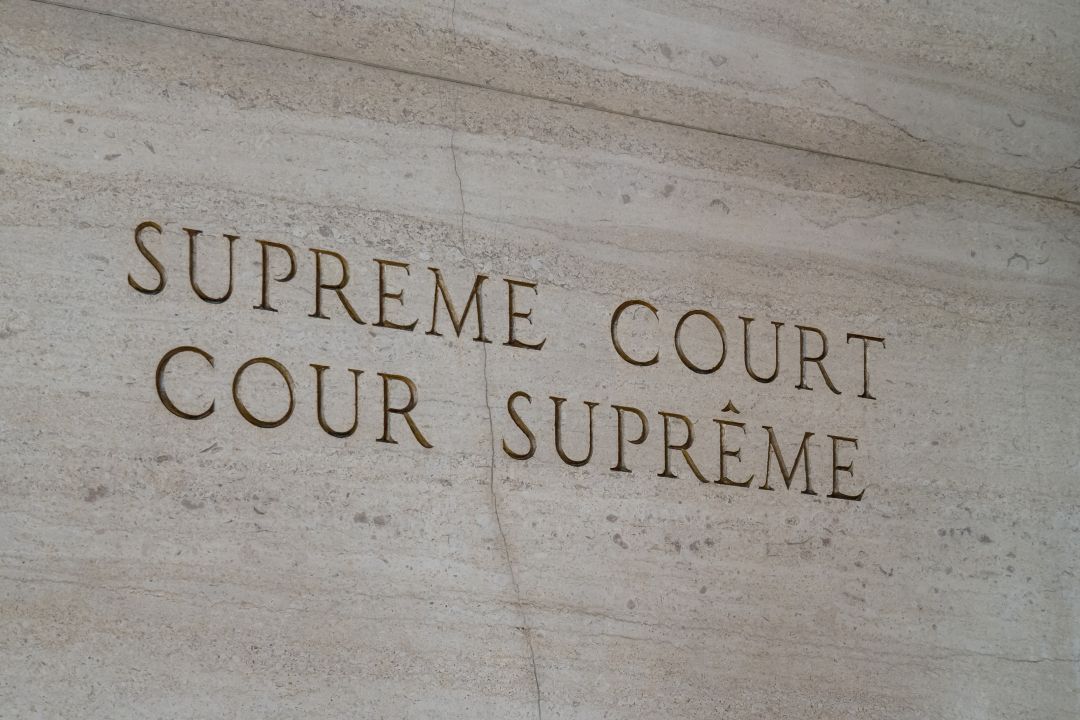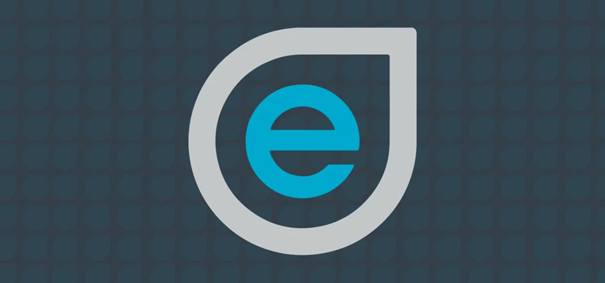Top judge says SCC wants to hear more private law cases, urges Canadians to ‘fight for’ rule of law
Cristin Schmitz
Originally published on Law360 Canada, formerly, The Lawyer’s Daily, © LexisNexis Canada Inc.
As the Supreme Court of Canada marks its 150th birthday amid rising incursions on the rule of law abroad, Chief Justice Richard Wagner says it can also be an opportune time for Canadians to reflect on the state of their own courts, the rule of law and their independent and impartial justice system.
“Since it is our 150th anniversary this year, it’s a good time, given what’s going on in the world very close to us, ... to reflect on that, and to make sure that we will fight for ... and defend ... our rule of law, defend our justice system, and make sure that the judges always could benefit from judicial independence for the benefit of the people,” the chief justice told Law360 Canada in an exclusive interview in his Ottawa chambers Jan. 29.
Earlier this week, the Supreme Court welcomed 85 ambassadors into its Art Deco courtroom, where the foreign representatives were curious about its unique role as the only apex court in the world that is both bilingual and bijural (i.e. civil and common law).
“Many of those ambassadors will communicate with my office and I will refer them to the National Judicial Institute (NJI) with a view to help their own judiciary in their own countries to improve their system,” Chief Justice Wagner said.

Recently, the NJI, the federal judicial educational body that he chairs, agreed to give the judiciary in Vietnam training on subjects such as judgment writing and ethical principles for judges, the chief justice said.
“We should not underestimate the importance of the Supreme Court, and the courts in general in Canada, on the world scene,” he remarked. “We are well-regarded. We are regarded as a democratic country that was able to keep the rule of law and an independent judiciary, which for [some foreign diplomats] is sometimes a strange animal.”
In the wide-ranging interview, the chief justice also said he and his colleagues would be “very happy” to hear more private law cases — addressing a concern lawyers have expressed that the top court allocates too many of its resources to criminal, constitutional and other public law cases.
Chief Justice Wagner also defended his court’s policy, implemented in 2022, to bar intervener counsel from arguing in person at the Supreme Court — expanding on his earlier remarks that limiting interveners’ counsel to advocating on the court’s Zoom platform levels the playing field among interveners and facilitates their access to justice by reducing costs.
But the evident challenges for the rule of law beyond Canada prompted Law360 Canada to raise the larger question about risks to that foundational principle of democratic governance.
Chief Justice Wagner declined to comment on any specifics involving the United States, including a number of American government actions since U.S. President Donald Trump took office Jan. 20, which are now facing court challenges.
“I’m not a politician, I’m only a judge,” he remarked, while acknowledging that “I am very concerned ... for the last couple of years” about threats to the rule of law internationally.
But for Canada “I’m optimistic,” Chief Justice Wagner declared.
“We should be mindful of what’s going on” abroad, he advised. “But at the same time, I think it gives us the opportunity to realize the nice assets that we have [in Canada] and to bring people on board, and to realize that we have good and strong institutions, good democracy. We have good judges — the best in the world. We export our expertise to many countries in the world and I think that Canadians, knowing that, will realize that ... we’re not that bad here in Canada ... And people should keep their trust in that,” he said. “They should realize that [we] are, in a way, lucky to have this system [of] independent judges, impartial judges, governed by ethical principles — which is not the case in many other countries.”
However, Chief Justice Wagner has also warned before that the Canadian justice system and judiciary are not immune to the kind of abuse and unfounded attacks, including from elected officials, that are seen in other countries.
Canada’s courts are also vulnerable to organized misinformation and disinformation that have shaken public confidence.
But whose role is it to combat fake news about the courts and justice system during what seems to be a fraught period for the rule of law?
The bar? Politicians? Media?
Preserving and supporting the rule of law, and Canadians’ understanding of and confidence in their system of justice, requires vigilance and action from the whole of society, including the judiciary, the bar, politicians and the public, he answered.
“I think it’s up to everybody, to every stakeholder, to do it,” the chief justice answered. “We have to aim for that,” he said. “Insofar as we’re concerned, we’re only judges. We only have limited space to do it. We do it through our judgments. But we have to take every opportunity we have to inform the public of what we're doing.”
The chief justice said that, to the best of his knowledge, the Supreme Court of Canada has not been targeted with an organized disinformation campaign, but he noted courts in other countries have been.
For example, Brazil’s Supreme Federal Court set up its own “Disinformation Combat Program” in 2021 to counter falsehoods that distorted or altered the meaning of its decisions and jeopardized democratic stability and fundamental rights in the country.
One means that the Supreme Federal Court chose to fight fake news was by providing as much accurate information to the public as possible.
“That resonates with me,” Chief Justice Wagner said. “Since public trust is fundamental to democracy and the justice system, it’s important for the judges to make sure the public knows about it — because it’s hard to appreciate something that you don’t know.”
The Supreme Court has rolled many initiatives based on its judges’ commitment to support and “to improve the public trust through knowledge, through information,” he noted (e.g. since he became chief justice in December 2017, the top court initiated plain-language summaries of all its judgments; hired communications personnel; expanded its social media presence; held appeal hearings and other public events in Winnipeg and Quebec City; issued annual reports; and in January 2025 unveiled a fully overhauled website.
(Canada’s top judge also accepts the standing invitation from the Canadian Parliamentary Press Gallery to participate in an annual question-and-answer session with the national media.)
On Feb. 3, the chief justice and Justices Andromache Karakatsanis and Nicholas Kasirer will also be in Victoria, B.C. for a two-day visit, which will include a local media availability, meetings with local judges, lawyers and law students, and a town hall-style Q-and-A session with the public. It’s the first of five such cross-country visits the court has scheduled to commemorate its 150th anniversary
“I think that we are lucky here in Canada, and especially at the Supreme Court, in terms of ... disinformation, but we have to fight for it,” he said. “I think the biggest mistake would be to stop thinking about it. So we have to always be mindful of that, so that we will find new initiatives to make sure that the right information is provided,” he said.
“But my recommendation, at this time, with my colleagues is to do our work the best we can, to write judgments as clearly as possible, and to take any opportunity to inform the public [and] inform the media what we’re doing. I think that’s the best counterattack we can find against misinformation so far.”
Law360 Canada asked Chief Justice Wagner to address a concern expressed within the bar that the Supreme Court is not accepting to hear and decide enough cases — particularly “bread and butter” private law cases.
(In 2023, the top court decided 34 cases, including 27 written rulings — a 76-year low. There has been a downward trend in the number of appeals decided by the court for more than two decades.)
The chief justice said the COVID19 pandemic was a “major” contributing factor to the court’s low output in 2023 as it reduced the number of intermediate appellate court judgments for which leave to appeal was sought.
Moreover, the court heard and decided more cases last year, which the chief justice says he expects will continue in 2025.
“I think that the effect, or the impact, of COVID 19 is gone ... and that’s why I’m optimistic that we could take more cases,” the chief justice said.
“I wish we would have more cases,” he added, observing that he and his colleagues “would be very happy to take more cases of private law compared to criminal law” or other cases.
“I cannot explain to you why, in private law, there’s not as many cases as I would like to see,” he said. “I don’t know the reason why.”
So what should lawyers be doing in this regard?
“Well I think that the bar, and of course their clients, if they want to go further they should ... try to get leave,” he advised. “I think that they should not be discouraged to ... ask for leave ... if they find that they have a reasonable case to argue.”
He indicated the court always applies the same “public importance” standard for leave to appeal — and not in a more restrictive way.
“We never changed our criteria. We are looking to cases where there is a legal issue of public importance, of public interest and [you can be assured] that once we see ... one, we’ll take it.”
We are looking to cases where there is a legal issue of public importance, of public interest and [you can be assured] that once we see ... one, we’ll take it
Does the low number of private law appeals indicate that private law litigants don’t have the means to take their case further? he queried.
“I don’t know the reason why. But there’s no willingness of the court not to take those cases,” he said. “In other words, we’re nine people looking at all the [leave to appeal] applications ... and I can tell you that I want to hear as many cases as possible, and we’re going on the right path now.”
Law360 Canada also asked the chief justice whether the court would reconsider its unpopular decision in 2022 to restrict intervener counsel to advocating for their clients on Zoom (whereas the parties’ counsel still have the choice to appear in the Ottawa courtroom or online).
A number of intervener counsel have told Law360 Canada they believe they can represent their clients more effectively in person in front of the judges, as it makes it easier to read the full bench and facilitates extemporaneous exchanges with the judges.
“Every rule can be reconsidered, that’s the way progress is made,” he replied. “I'm not telling you that it will be reviewed but I think history and experience in this court has shown that we are willing and ready to change our habits, to change our way of doing things, so it will remain the same in the future.”
Yet “the future demands that we use technology more and more in order to lower ... the cost [of], in order to facilitate access to, justice,” he explained. “We kept the hearing of the parties in [our] presence, but we thought it would be a better use of the judicial resources, and ... show the way for the future, in asking that all the interveners for five minutes argue their case at distance.”
At the same time, interventions are welcome and important to the Supreme Court of Canada, unlike some other Supreme Courts around the globe, he noted.
“It has to be clear, we need interveners,” Chief Justice Wagner said. “And one way to keep it, and to keep the number [of interveners] as high as possible, is to facilitate access to justice, facilitate their presence in the courtroom, and that’s by using technology.”
One of the policy’s objectives is to put all interveners “on the same level” and “avoid discrimination.”
“The other reason is [intervener argument] is only for five minutes,” he said. “And to ask a party to come from Newfoundland or B.C. to Ottawa with plane and hotels and so on and so forth for five minutes, it’s a question of access to justice,” he said. “It’s a question of costs.
“And it was unfair to force all those people acting for different organizations ... to pay for those expenses,” he elaborated, alluding to a pressure some interveners would feel to send their counsel to Ottawa if other interveners chose to do so.
“A good argument, whether it be in court or by Zoom, is a good argument and that doesn’t change whether you are at a distance or in court,” Chief Justice Wagner said.
He said he has received positive feedback about the court’s use of Zoom from intervener counsel whose clients’ can’t afford to send them to Ottawa.
The chief justice, who co-chairs with the federal Minister of Justice the Action Committee on Modernizing Court Operations, said it is also important that everyone in the Canadian justice system continues work on solving longstanding and well-documented problems, such as high costs and delays, that ordinary Canadians face in their efforts to get justice.
He also highlighted three pivotal years in the development of the Supreme Court of Canada since its creation in 1875: its transformation into Canada’s final court of appeal after appeals to the Judicial Committee of the Privy Council in England were abolished in 1949; the1982 birth of the Canadian Charter of Rights and Freedoms, which expanded the role and powers of the judicial branch of government; and the court’s 2014 majority decision in Reference re Supreme Court Act, ss. 5 and 6, which held that the top court is a “constitutionally essential institution” and a “foundational premise of the Constitution” whose composition and “essential features” cannot be substantively changed, except by constitutional amendment, thereby securing its existence against abolition by Parliament and its nine-member composition: 2014 SCC 21.
“I think that was a great, great decision,” said the chief justice, who voted with the 6-1 majority.
For example, the Supreme Court Act guarantees Quebec three judges on the top court and, following the Supreme Court’s reference decision, “that cannot be changed, even though the number of the [Quebec] population, [its] demographic percentage [in Canada] may be lowered,” the chief justice said. “Same thing for the number of judges. It’s fundamental that there be some stability ...,” he said.





